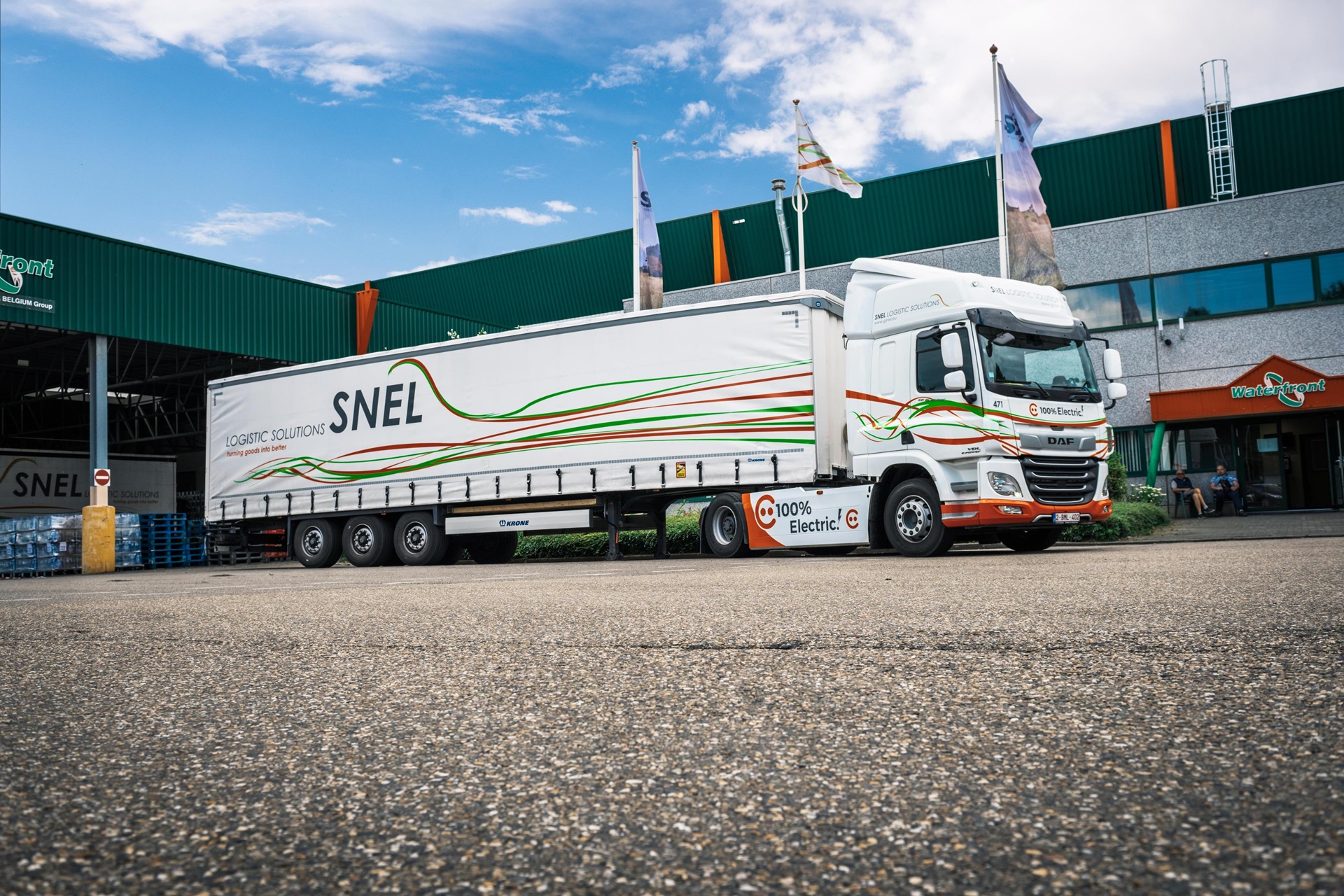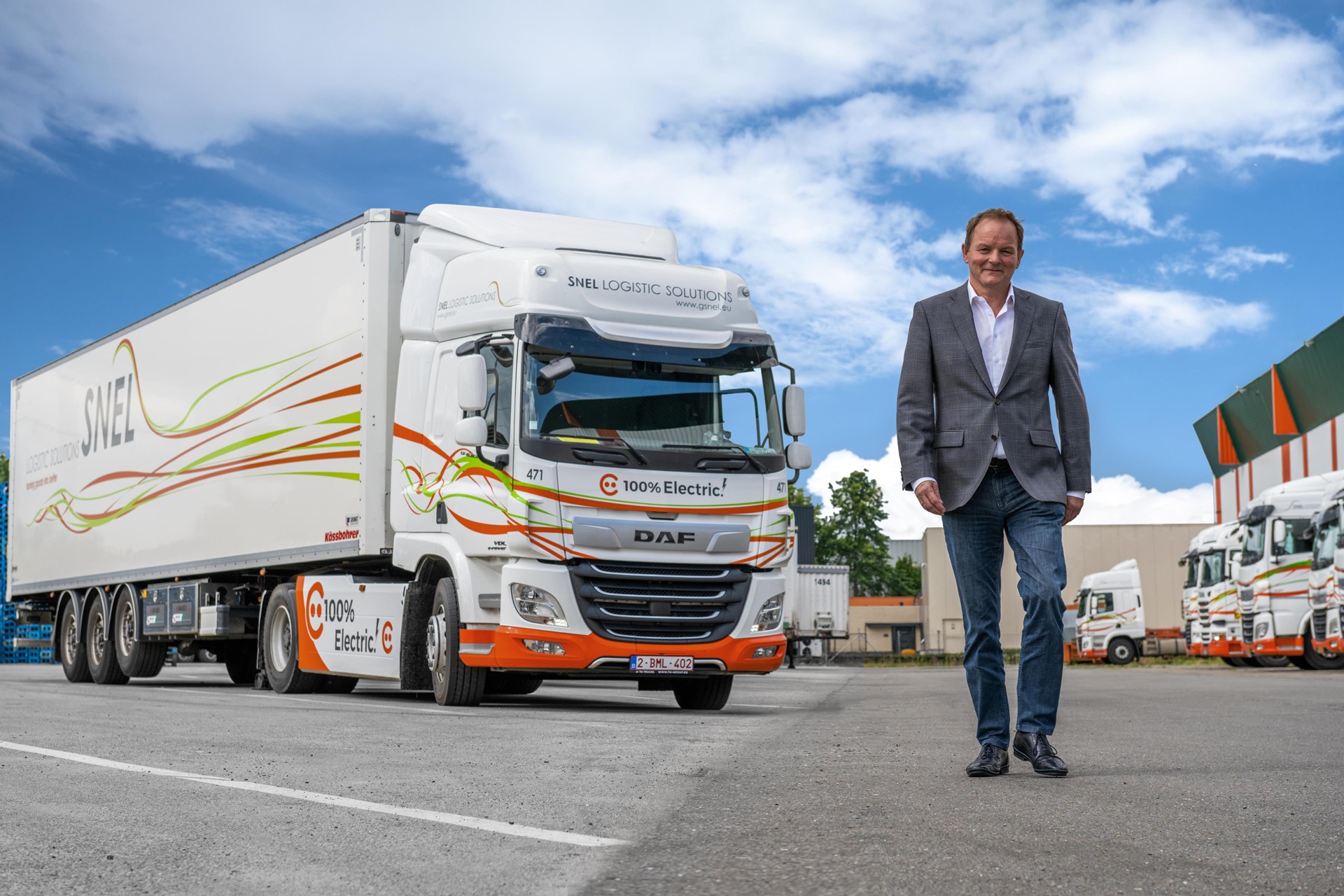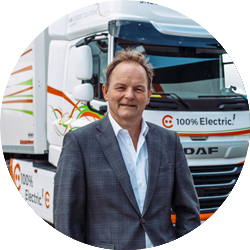

Snel Logistic Solutions
Sustainability concerns us all
Pioneers in electric transport
Snel Logistic Solutions is a company that is inextricably linked with sustainability — the first CF Electric truck in Belgium and switching to HVO as a standard fuel are just some of the many initiatives that the firm has adopted. “There is always room for improvement, so the new CF Electric fits perfectly into our plans to become even more sustainable”, says CEO and owner Gert Snel.
Sustainability
Snel Logistic Solutions has been committed to sustainability for many years. All of the electricity used by the logistics service provider is 100% green and is generated by solar panels that are installed at the company's four sites. In collaboration with the Belgian conservation group Natuurpunt, several hectares of forest land were purchased to compensate for the CO2 emissions produced by diesel-powered trucks, which is in addition to the forest land that had already been purchased by Snel. Not to mention, a significant proportion of Snel's vehicles already use HVO (Hydrotreated Vegetable Oil), a biodiesel based on residual waste from the agricultural industry.

Gert Snel, Director at Snel Logistic Solutions
“We all know that things cannot carry on as they are today. We also all know where we have to get to”, says Snel.
“Quite how we get there remains to be seen, but we need to start somewhere and I would like to make my contribution to this.” The fact that Gert is serious about his company's task is clear from his concrete plans for the future — conversations with local authorities regarding the installation of wind turbines are ongoing. “If we are going to use more electric trucks, I want them to be powered by green energy, which we want to generate via wind turbines.”
The challenge
“We had wished to use fully electric trucks for a long time, but their range was inadequate for how we operate. The arrival of the second generation of CF Electric changed this, because of their greater range and lower weight. However, the transition to electric driving continues to be a significant change and DAF has been a valuable partner to us during the switchover. For us, the biggest challenge is now in the planning process. It's no longer possible to stop off and quickly fill up the tank, which makes us less flexible. This firstly requires some understanding from our customers and secondly poses a challenge for our planners and drivers. The charging time has to be factored in, while at the same time you want to keep the drivers working. The trick is not to see this as a limitation, but rather as an opportunity.”
Driving with the CF Electric
“An electric truck like this is wonderful to drive, quiet and very comfortable”, says Snel, who gets behind the wheel himself with some regularity. “If it's very busy, I'll jump in and drive myself. This keeps me connected to the profession and my employees. I find that not only my colleagues appreciate this, our customers also do if they see me turning up at their premises.” In practical terms, Snel has already noticed that the driving style you adopt affects energy consumption even more than on a diesel truck. “We noticed that you can drive much further on battery power when you use engine braking; the energy is literally being recovered when you do so.”
A new network
“A nice bonus of this electric truck is that we are able to serve a completely new group of customers. More and more companies are turning their attention to corporate social responsibility and are open to this new development. Although electric transport is currently unable to compete cost-effectively with traditional road transport, reducing their CO2 footprint is a factor that companies are giving greater prominence”, Snel says. One of these customers is Coca-Cola Nederland, which even has a special campaign to promote sustainable transport. “In addition, this way you become known within a network of companies that want to work on sustainability. We don't get sales straight away but we do get knowledge, which is also very welcome in this pioneering phase. This network has also led to us coming into contact with Natuurpunt and we are now investing in one of its forest areas.”
Facts & figures
Snel Logistic Solutions
320
Employees
150
Vehicles
320
Trailers
A glance forward into the future
“To allow transport companies to cover longer distances using electric power, I believe that the number of charging stations needs to be increased considerably”, Gert Snel states. “It's difficult to create profitable routes at the moment and it takes a lot of planning. We compensate for the lack of charging stations by keeping the batteries completely in our own control.” DAF's development of a hydrogen-powered truck with an internal combustion engine is something that pleases Gert Snel greatly. “Although the purchase price of that truck will be quite high because of its complex technology, I expect that the range will be greater than a fully electric truck. This makes it possible to undertake long-distance journeys in a more sustainable way. I therefore look forward to investing in this new vehicle when it becomes available, which is still a few years away.” Snel Logistic Solutions believes that is not only customers that are increasingly seeking sustainability — the entrepreneur believes that positioning themselves as sustainable is an increasingly important factor for companies in terms of the labour market as well. “We don't just want to be future-proof; we also want to take on a pioneering role.”